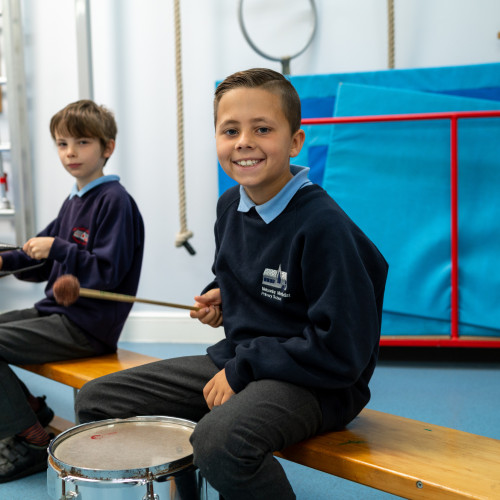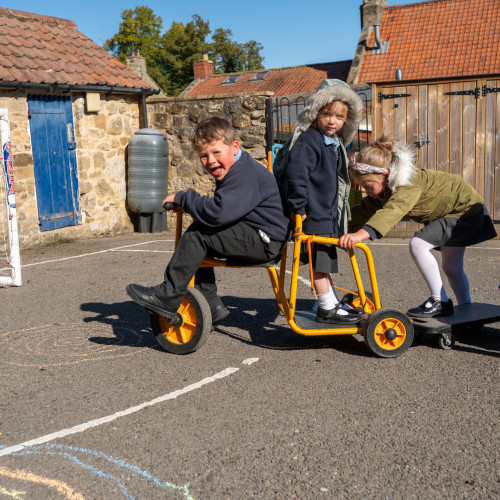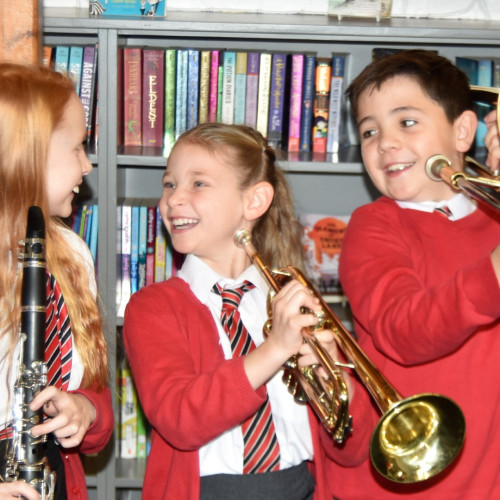
British Values
At North and South Cowton Primary School we take very seriously our responsibility to prepare children for life in modern Britain.
We ensure that the fundamental British Values are introduced, discussed and lived out through the ethos and work of the school. All curriculum areas provide a vehicle for furthering understanding of these concepts and our RE, PSHE and Citizenship lessons provide excellent opportunities to deepen and develop understanding.
| British Value | Statement | Evidence | Impact |
|---|---|---|---|
|
Mutual Respect and the Tolerance of those with different Faiths and Beliefs |
Respect is a fundamental value, around which pivots much of the work of the school. We promote mutual respect for others throughout everything we do. We pay explicit attention to this as part of our RE, PHSE, and SMSC curriculum. The importance of respect is discussed deeply, starting with self- respect and covering respect for family, friends, and other groups; the world, its peoples; and the environment. |
|
Children can articulate why respect is important; how they show respect to others and how they feel about it for themselves. Children’s behaviour demonstrates their good understanding of this value in action. Children are able to talk about the different faiths and cultures they learn about, ask questions and show tolerance and respect for others of different faiths and religions. Pupils can articulate how the lives of children in other countries differ from their own. |
|
Democracy |
The children of the school see democracy borne out in a whole variety of ways and see this as being an essential component of successful team working. They have many opportunities to have their voice heard and impact upon school life. e.g Pupils discuss and influence their class rules, they plan activities, Pupil Council and choice of topic. The principle of democracy is explored when discussing respect and fairness through many areas of the curriculum such as sporting activities, choosing roles for the plays, and group working in class. The establishment of the pupil council representatives models the democratic process. |
|
Children are able to work cooperatively in pairs and groups as well as in whole class situations. They understand about turn taking and respecting the views of others. Children are able to use the language of respect. |
|
Rule of Law |
The children in the school become familiar with this concept through the ethos that infuses the entire work of the schools. We have a Code of Conduct that is agreed by all pupils and staff alike at the beginning of every year. They are familiar with the concept through the discussion of core values and, in RE lessons, the idea that different religions have guiding principles. Children are familiar with the local police who visit to talk to them informally. Our Behaviour and Anti Bullying policies set out a zero tolerance for any form of aggression, abuse or violence and this is consistently applied by all. The school runs workshop on cyber bullying and internet safety. Each year the Year 5/6 take part in the NYCC Crucial Crew event . |
|
Children are able to articulate how and why we need to behave in school and demonstrate they understand and can abide by our school Code of Conduct. They are able to discuss and debate philosophical issues in relation to these. |
|
Individual Liberty |
The philosophy of our teaching and learning places emphasis on the right to have our own thoughts and evidence based views. Children are strongly encouraged to develop independence in learning and to think for themselves. We give our pupils a range of responsibilities around the school. For example, supporting the younger pupils at playtimes, digital leaders setting up assemblies and children selecting and reading a closing prayer during celebration assemblies. Pupils are supported to develop their self-knowledge, self- esteem and self-confidence in all areas of school work. Assemblies and class discussions are often based upon individual Core Values encouraging pupil responsibility, resourcefulness, resilience, respect, reflection and reasoning. Pupils are encouraged to know, understand and exercise their rights and personal freedoms and are advised how to exercise these safely. Vulnerable pupils are protected and stereotypes challenged. A strong anti-bullying culture is embedded in the school such that any form of bullying is challenged and addressed. The school has a robust system for logging incidents. |
|
Children are able to show independence in learning and to think for themselves. Children understand about the importance of accepting responsibility and of their right to be heard in school. They are consulted on many aspects of school life and demonstrate independence of thought and action |




